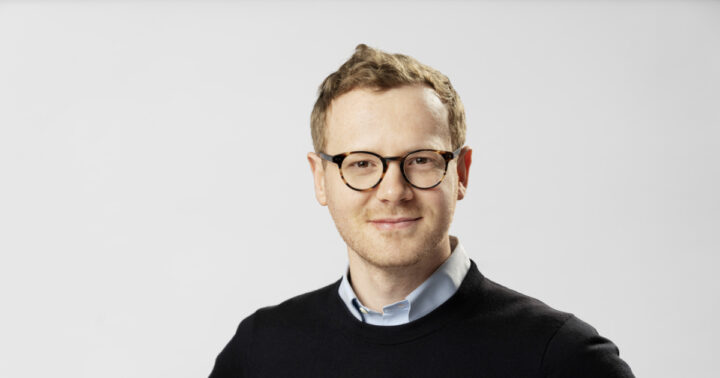It’s no secret that venture capital is what drives early-stage drug development in the biotech industry. But beyond being a simple source of cash to spend on research, some VCs play a significant role in building the company with its founders.
To better understand the dynamic between biotech startups and VCs, we talked to Johan Kördel, managing partner at Sound Bioventures.
For him, there is a big difference between VCs that focus solely on finance and VCs like his firm that add value to the startups they invest in.
“If you get a good VC, you also get access to domain experts,” said Kördel.
VCs like Sound Bioventures have access to a pool of experts who can assist biotechs through research and development.
“So, if it is in a certain area, for example in ophthalmology, then we know the person we should ask to come in and help the company. And what often happens is that person then becomes an advisor or becomes a board member, directly working with the company,” said Kördel.
A VC should also ensure that their portfolio startup is on track with their development plan, and if not, offer help to assist them.
“We always work with the companies, typically by having regular calls just to keep updated. But then when there is an issue or an area where advice is necessary, we open up our network.”
The importance of hands-on experience for VCs
But what makes Swedish VC Sound Bioventures, which was founded in 2021, unlike others is that the team consists of people with actual operational and R&D experience rather than a pure finance background. Kördel thinks that this gives them an edge over other investors.
“When you have an operational background, you are a better speaking partner than if you have a banking background or if you have a management background,” said Kördel.
He added that while there is nothing wrong with having experience only in the banking sector, when it comes to building life science companies, “we need all those competencies in the venture world.”
“If we’re talking about company creation, having operational experience – you know what it is to run a company or a group – and you know what it is to develop a drug. So, that’s something that we think is unique with us,” he said.
While Kördel doesn’t believe that you need to be a scientist to run a life science company, he explained that an understanding of the science behind a particular therapeutic candidate could help decide whether an investment is worth it.
“It becomes difficult as a manager to sort between what people are telling you unless you have a scientific background. But I don’t think you necessarily have to have a PhD because some of the really good people I’ve met in the industry don’t. It depends on what you specialize in,” said Kördel. “But I think it makes me feel comfortable going into a situation where I know nothing about the science that people are going to tell me, because I feel that I have the confidence to question – Am I being told the right thing? Or are people trying to tell me a beautified version of what the real situation is? So, I think the scientific training is to everyone’s advantage.”
Another advantage of some VC firms is that they can combine scientific founders with a roster of entrepreneurs they know, a concept known as “entrepreneur in residence” (EIR).
Role of entrepreneurs in residence in launching life science startups
While VCs like Sound Bioventures seek a specific compound or drug or cell therapy that is set to enter the clinic soon enough, in an attempt to build a life science company from scratch, they hire entrepreneurs in residence (EiRs).
An entrepreneur in residence’s job is pretty straightforward. During the early ideation and business planning phase, they work closely with founding teams to refine the concept, technology, clinical strategy, market opportunities and competitive landscape, according to Stewart Dixon, founder and managing partner of VentureDNA, a Chicago-based private equity firm.
Once a launch plan is developed, Dixon explained that the entrepreneur in residence taps into their network to introduce a startup to potential scientists, advisors, and partners who can help strengthen the opportunity. They also help founders create a compelling pitch deck and fundraising strategy.
“When it’s time to seek funding, the EIR actively participates in fundraising preparation. They rehearse pitches with the founders, provide feedback on investor materials, and accompany the team on fundraising roadshows to vouch for the opportunity and address technical due diligence questions,” said Dixon.
Even after a biotech has raised money, an entrepreneur in residence may stay on to help recruit the initial team members and achieve early technical and clinical milestones.
“Overall, the EIR plays a pivotal hands-on support function for VCs by leveraging their deep biotech expertise and extensive networks to help incubate and accelerate early-stage biotech startups from concept through launch and initial development. Their involvement greatly increases the chances of success,” said Dixon.
By helping form new companies by scouting for potential biotech founders with R&D ideas, connecting innovators to industry experts as well as mentoring them, Dixon pointed out that an entrepreneur in residence “cultivates an entrepreneurial mindset and guides ventures from concept to launch.”
“Without EIRs actively sourcing opportunities and nurturing innovation, many worthwhile concepts may never materialize,” he said.
VCs: more than just a reservoir for capital?
As funding from VC helps support preclinical and clinical milestones, they also help build industry connections.
“They utilize their networks to introduce biotechs to experienced CROs (contract research organizations), manufacturers, and key opinion leaders who can support clinical work. VCs may also help recruit experienced executives and department heads. Importantly, their networking opens doors to potential pharma partners and additional investors,” said Dixon.
Like Sound Bioventures, VentureDNA looks out for biotech projects in their earliest stages. It aims to recruit expertise, form strategic alliances, and procure funds for the startups it works closely with so as to boost innovation, and see clinical and eventually, commercial success.
Dixon said: “Ultimately, VCs actively monitor programs, providing counsel to help early-stage companies overcome challenges and achieve milestones that move products closer to commercialization opportunities and, eventually, lucrative exits. Their multifaceted support is key to translating early-stage discoveries into clinical therapies.”
By Roohi Mariam Peter



